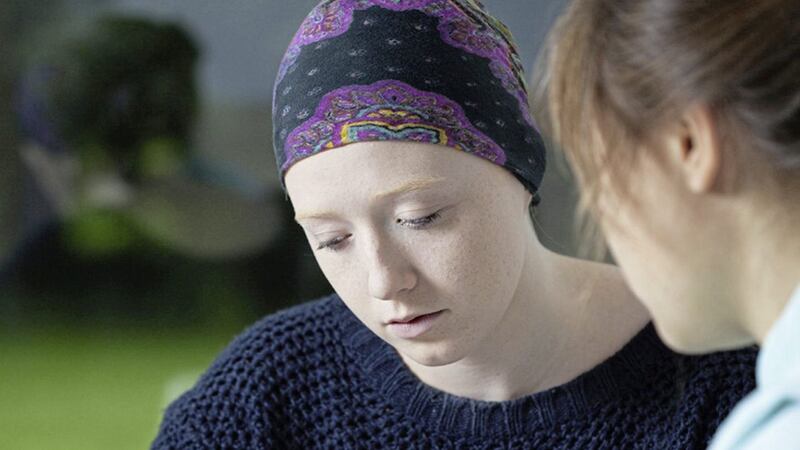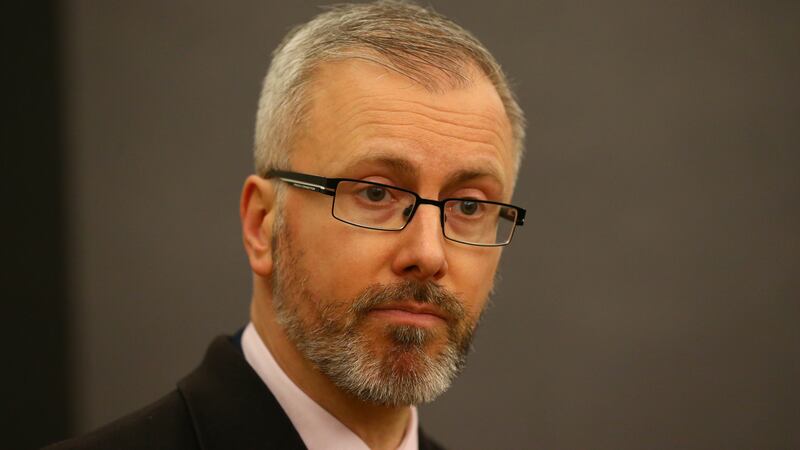A report into cancer care in Northern Ireland has highlighted a string of failings, resulting in a "severely deteriorated" service that lags behind the rest of the NHS.
In one of the most critical publicly-funded reports of its kind, authors castigate the Department of Health over a lack of planning, warning that the north's main cancer strategy is now almost 10 years old compared with 'updated' 2015/16 versions in England, Scotland and Wales.
Lead researcher Dr Lesley-Ann Black, a highly-respected academic commissioned by the assembly, also says that "more transparency is needed" after repeated attempts to gain information on policy reviews and 'action plans' were denied to her team.
There are currently three main cancer policies, with each listing standards to be met. But the report claims it is impossible to evaluate the effectiveness of this work due to the "absence of formal performance reviews".
While welcoming advances in treatment that have led to more people surviving the disease, it states that cancer remains the leading cause of death in the north with 4,255 lives lost in 2015.
By 2020, it is estimated that almost one in two people will receive a diagnosis.
In a stark warning, Dr Black notes that almost half (45 per cent) of cancer patients in the north receive a late diagnosis, which leads to difficulties in treatment and "impacts on patient quality of life and survival rates".
She states: "Overall, assessing performance from a scrutiny perspective is difficult as not all information is readily available or in the public domain."
Concerns raised include:
- Main waiting time targets drawn up by health ministers have never been met, eight years after they were first introduced
- 'Red flag' or suspected cancer patients are facing delays from GP referral to hospital consultant
- A 62-day target to provide treatment following diagnosis is being breached
- GP and radiology shortages are impacting on delays
- It is impossible to evaluate the north's three main cancer policies - including the 2011 skin cancer policy - as no data is "publicly available"
Dr Black states: "Performance has severely deteriorated in recent years. This suggests patients are currently experiencing severe delays in getting a cancer diagnosis.
"...Information was also sought from the Department of Health about what actions are being taken to improve waiting time performance, but a response was not given.
"It remains unknown what impact such delays are having on patients but there are likely to be some negative implications regarding outcomes.
"It also begs questions relating to why the targets have not been met for several years, why are more manageable targets not being set and what actions are being taken to reduce deteriorating waiting times?
"Furthermore, Northern Ireland is the only jurisdiction in the UK and Republic of Ireland not to have updated its cancer strategy. Evidence also suggests more could be done in terms of earlier diagnosis and more timely treatment."
SDLP Foyle MLA Mark H Durkan described the report's findings as shocking.
He also questioned why such an "important piece of research" was published on the assembly website in the middle of summer.
"The failure to meet targets and the fact we appear to be lagging behind everywhere else is not particularly surprising and this report makes the case for a new cancer strategy crystal clear," he said.
"But there is also the concern about the lack of transparency around the publication of documents to assess performances.
"Behind all these statistics and research are individuals and their families living with a cancer diagnosis."
Cancer in Northern Ireland
- Cancer diagnoses are set to soar by two-thirds over 20 years in Northern Ireland due to people living longer
- Survival rates have increased dramatically for some cancers including breast cancer, but the disease is killing one in five patients in the north just six months after diagnosis
- The north's main cancer centre at Belfast City hospital needs to "double its floors" by 2035 to deal with demand
- Breast, lung, bowel and prostate cancers are the most common cancers
- Of the 1,200 new lung cancer cases diagnosed each year, many patients are dead "within the year", according to Dr Anna Gavin of the NI Cancer Registry
- Patients diagnosed with pancreatic, liver or stomach cancer also have little chance of living more than a year







